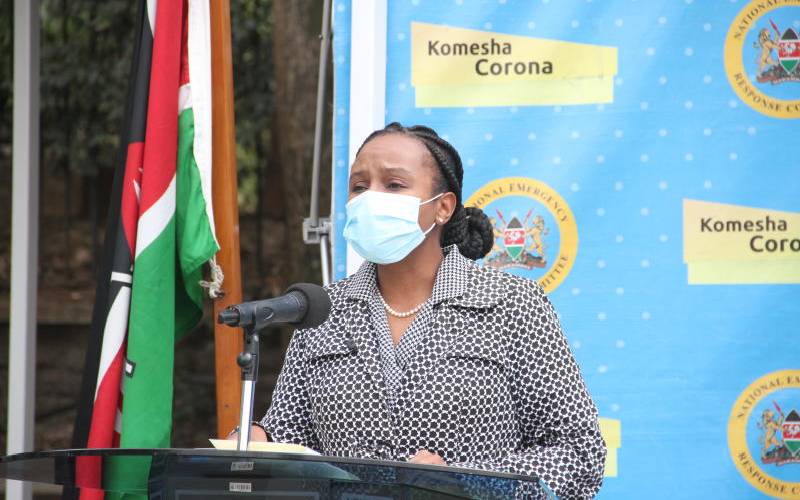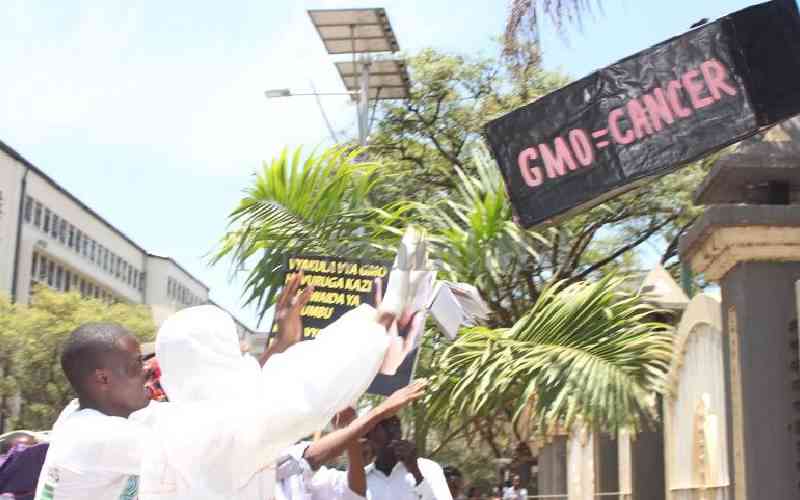
Out of the five new deaths reported in Kenya today, two had underlying health conditions. One had cancer and the second had diabetes.
As the Kenyan cases fatality rate stands at 1.6 per cent and the national tally now hitting 465, the Health ministry has urged those with underlying health conditions to be extra careful to reduce their chance of contracting coronavirus.
Covid-19 is killing diabetes and hypertension patients more than any other people with underlying medical conditions.
For instance, of the mortalities announced on June 18, seven had underlying conditions: four had diabetes, one high blood pressure, one bone cancer and one HIV.
Of the three fatalities reported on May 27, one had diabetes, the second had diabetes and hypertension while the third one had cancer of the breast.
Amref Health Africa CEO Githinji Gitahi last month said Covid made diabetes worse and may also cause diabetes.
“In some people who may have been borderline diabetic, Covid may make it show and become worse,” he said, adding that patients with diseases of the cardiovascular system and cancer also had a higher risk.
The Kenya Health Information System January to March 2020 data from 21 reporting counties on hypertension indicate that a total of 67,465 hypertensive patients were seen and reported. Those hypertensive are disproportionately women, 49,144 were females while 18,231 cases were male.
Diabetes was second with 15 per cent, 11.8 per cent said they knew someone with a chronic lung disease such as asthma and fibrosis, heart disease, heart attack or stroke (3.2 per cent), cancer (2.0), bronchitis (1.6), while 5.8 per cent said they knew someone with a compromised immune system.
Meanwhile, 580 people tested positive for Covid-19 in Kenya, Health CAS Dr Mercy Mwangangi (pictured) said on Friday.
The number now pushes the national tally to 29,334. In the new cases, 530 were Kenyans while the rest were foreigners.
Some 336 men and 244 women tested positive for the virus with the age range being between one year and 92 years.
In the distribution of the new cases, Nairobi led with 375 followed by Kiambu (53). Ninety-three per cent of the new cases are asymptomatic.
It has been nearly eight months since the first Covid-19 cases were reported and scientist are in agreement that the virus has mutated over this time.
What remains unanswered, however, is whether SARS-CoV-2 has mutated in such a way that makes it more lethal.
SARS-CoV-2 is an RNA virus, which mutates easily because it has a single strand of genetic information compared to two strands in DNA viruses, which allow for any internal changes to be detected and deleted.
Out of the thousands of mutations to the virus's genetic material that have been spotted so far, only one has been singled out as possibly altering its behaviour.
A study conducted at the Scripps Research Institute has shown that a mutation named D614G that affects a spike protein on the surface of the virus makes it easier for the virus to enter host cells.
This ease of transmission means that patients infected with this variant have higher viral loads and are more infectious.
Micheal Farzan, a professor of immunology at Scripps, warns that this could lead to an increase in transmission between humans.
There is, however, still no evidence that the mutation has made the disease more severe or deadly.
 The Standard Group Plc is a multi-media organization with investments in media platforms spanning newspaper print
operations, television, radio broadcasting, digital and online services. The Standard Group is recognized as a
leading multi-media house in Kenya with a key influence in matters of national and international interest.
The Standard Group Plc is a multi-media organization with investments in media platforms spanning newspaper print
operations, television, radio broadcasting, digital and online services. The Standard Group is recognized as a
leading multi-media house in Kenya with a key influence in matters of national and international interest.











